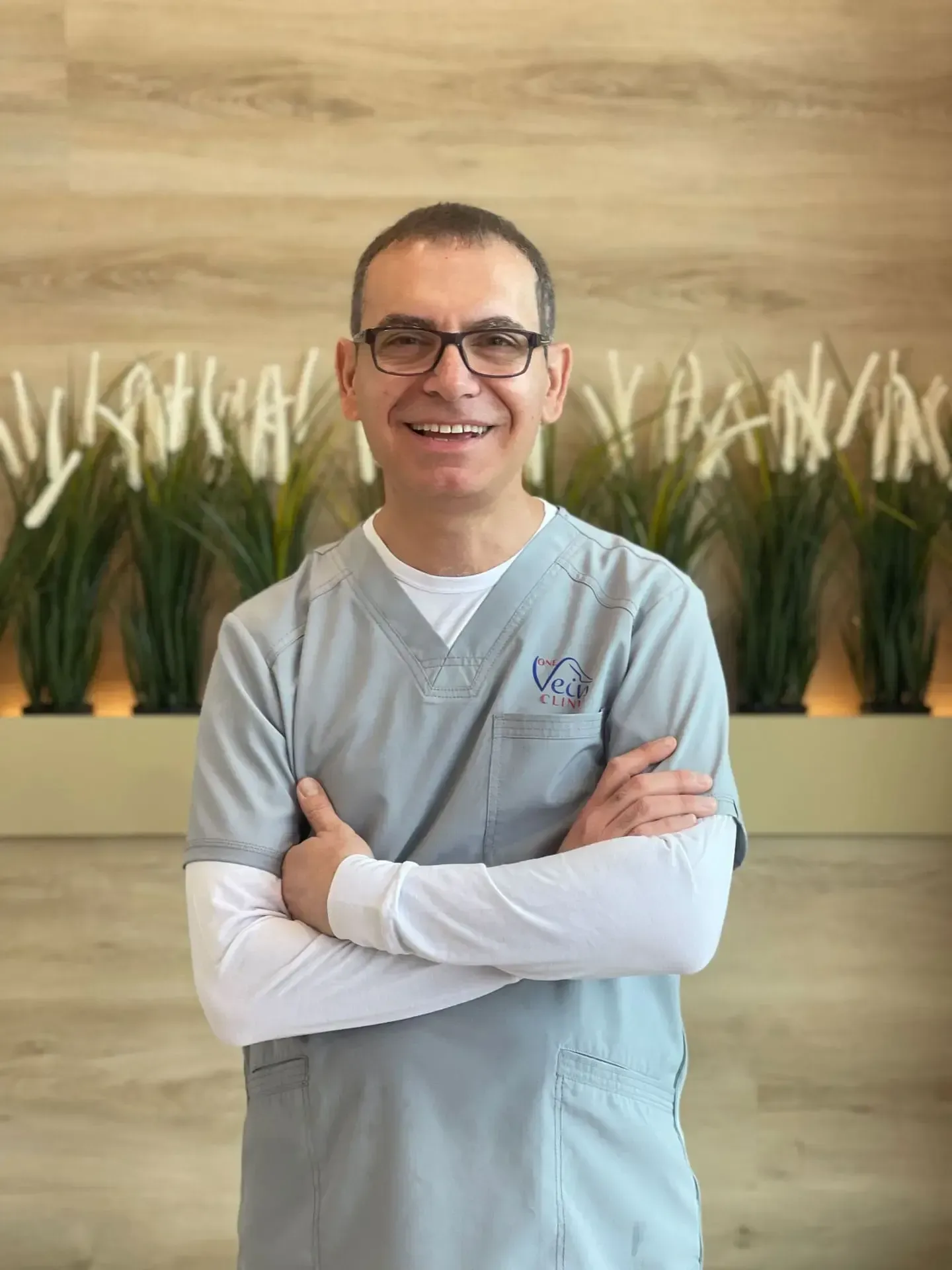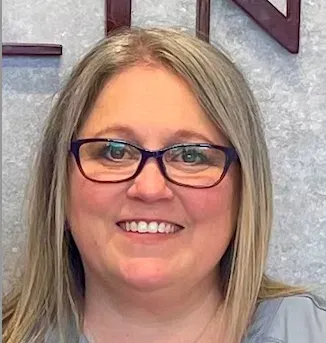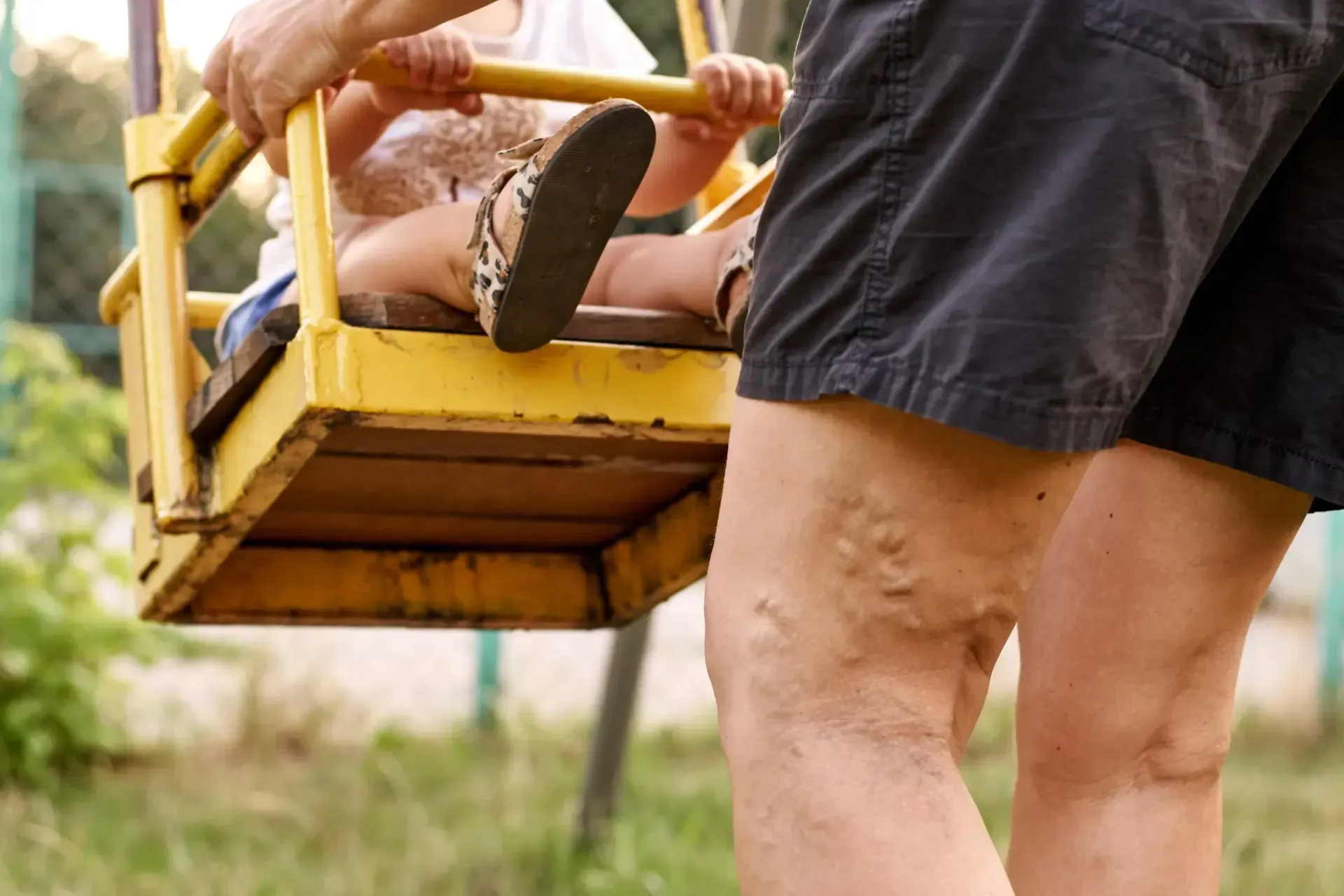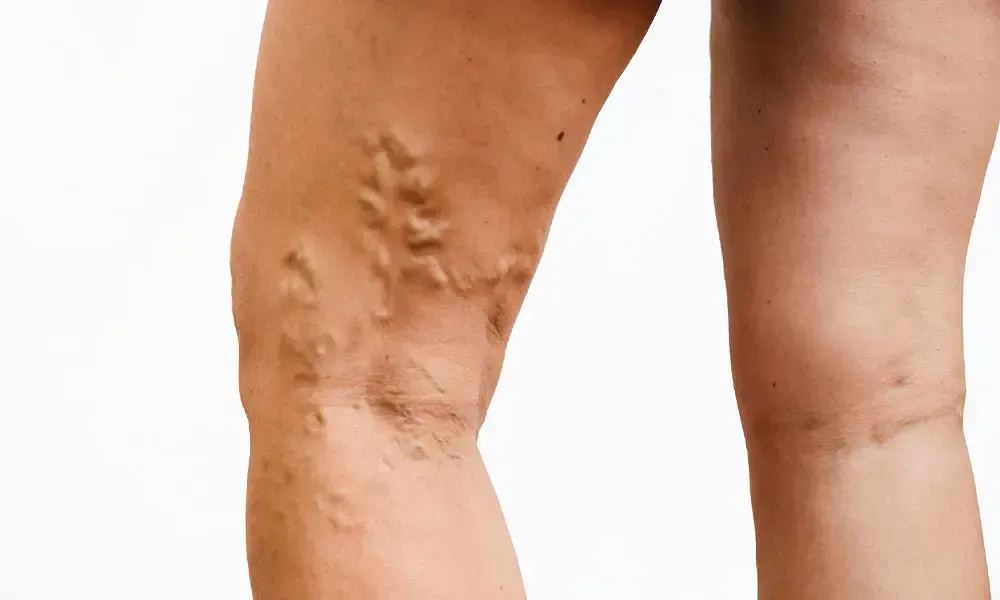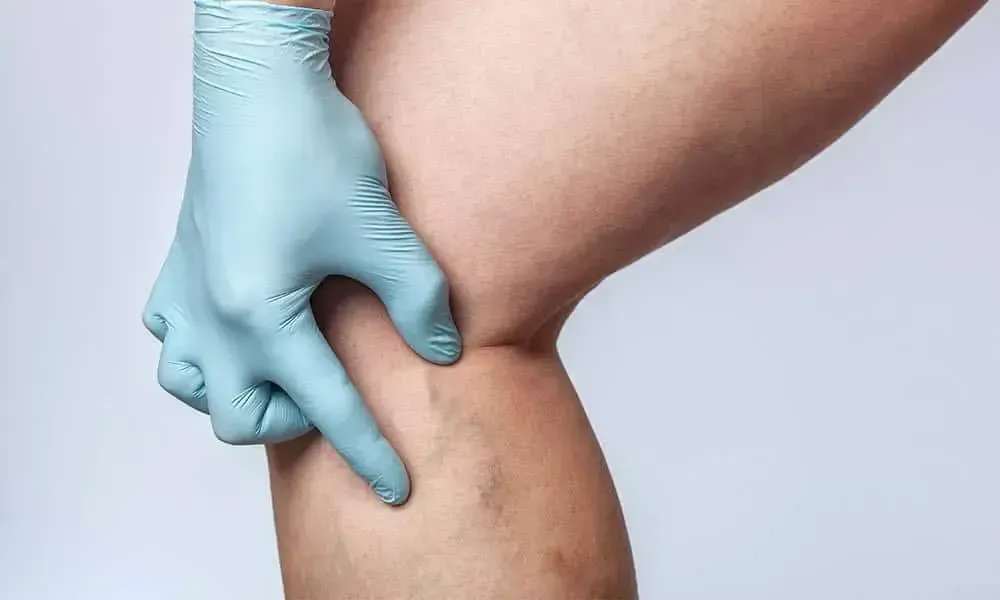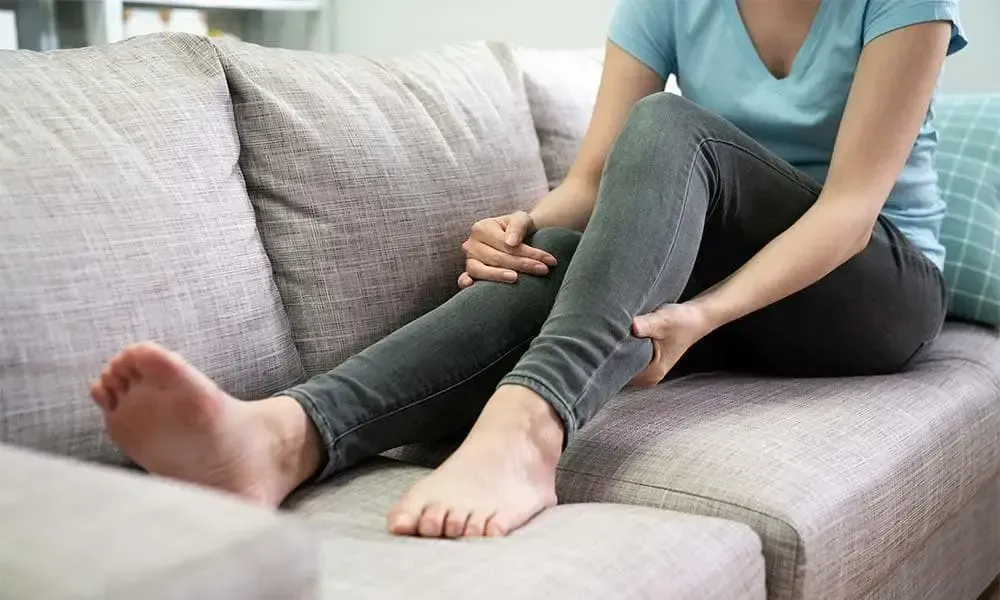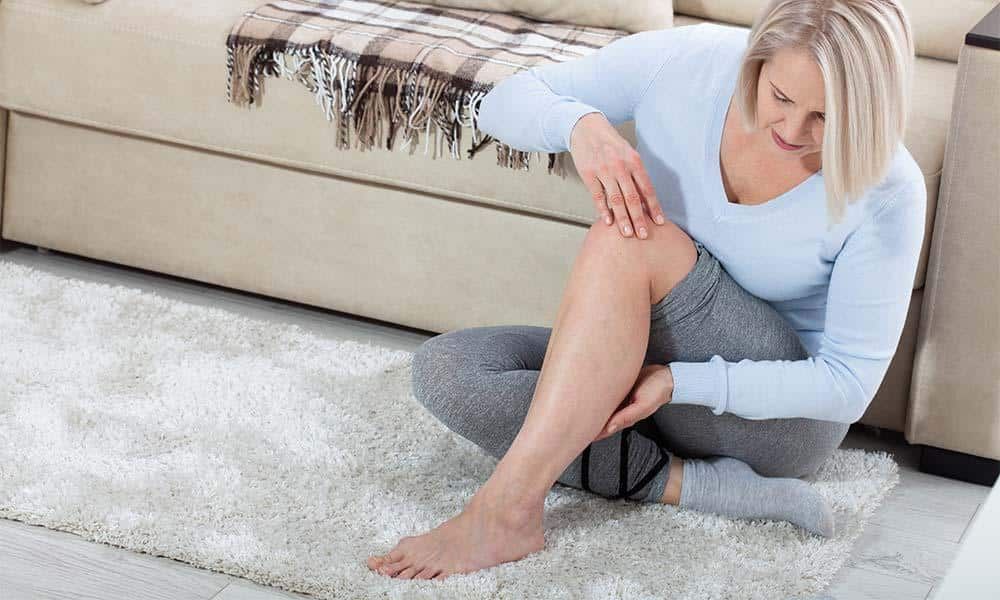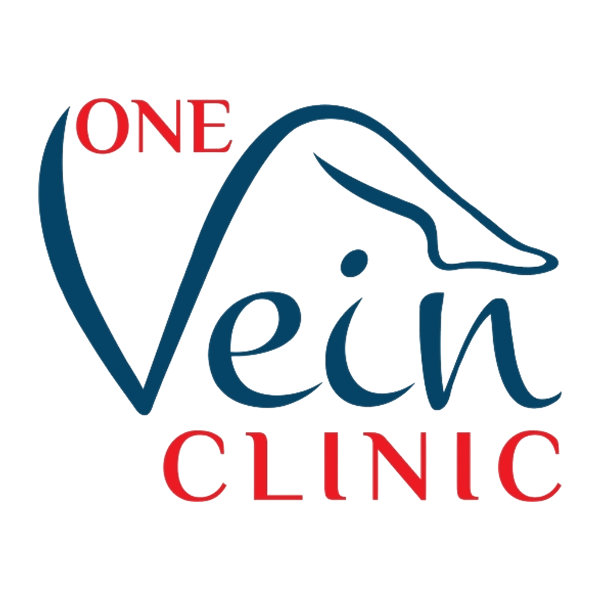Should You See a Doctor About Skin Discoloration on Your Legs?
If you’ve noticed skin discoloration on your legs, it could indicate an underlying medical condition. One of the most common causes of skin discoloration on the legs is vein disease, also known as venous insufficiency.
Vein disease can significantly impact your quality of life if left untreated. Treating vein disease can alleviate your symptoms, improve your overall health, and reduce your risk of developing more serious medical conditions.
At One Vein Clinic , vein expert Dr. Fawzi Farha provides comprehensive treatments for a full range of issues that affect the veins. It’s wise to visit a vein specialist for an evaluation when you notice skin discoloration. An ultrasound to assess the blood flow in your legs is commonly used to help identify any areas of blockage or reflux. Based on your exam and ultrasound results, Dr. Farha can diagnose your condition and develop a treatment plan.
Understanding Vein Disease
Leg veins carry blood back to your heart. They have small valves that open and close to allow blood to flow in one direction. When the valves are damaged or weak, blood can flow backward and pool in your legs, causing various symptoms. Some of the common symptoms of vein disease include:
- Leg pain
- Swelling in the legs
- Varicose veins
- Spider veins
- Leg cramps
- Restless leg syndrome
- Itching or burning in the legs
- Skin changes
Don’t hesitate to speak with a vein specialist if you notice any signs of skin discoloration on your legs or other vein problems.
Skin Discoloration on Your Legs
Skin discoloration on your legs is a common symptom of vein disease. When blood pools in your legs due to weak or damaged veins, it can cause the skin to become discolored. The discoloration is often seen around the ankles and can extend up the legs. The discoloration is caused by the breakdown of red blood cells, which release iron into the surrounding tissue. This iron can stain the skin, causing discoloration. Other skin changes, such as thickening or ulceration, can also occur.
Treatment Options for Vein Disease
There are several treatment options for vein disease, ranging from lifestyle changes to minimally invasive procedures. The most appropriate treatment for you will depend on the severity of your condition and your individual health needs. Here are some of the most common treatment options for vein disease:
Lifestyle Changes
In some cases, changing your lifestyle can help alleviate the symptoms of vein disease. Dr. Farha may recommend that you:
- Exercise regularly
- Lose weight if you are overweight
- Elevate your legs when resting
- Wear compression stockings to improve blood flow
In many cases, these changes improve symptoms. However, there are effective treatments to eliminate bad veins and boost vascular health.
Sclerotherapy
Sclerotherapy is a minimally invasive vein treatment that involves injecting a solution into the affected veins. The veins eventually dissipate after using this treatment once they collapse. The most common conditions treated with sclerotherapy are spider and minor varicose veins.
Endovenous Laser Treatment
Endovenous laser treatment (EVLT) is a minimally invasive procedure that uses laser energy to close off the affected veins. During the procedure, a small laser fiber is inserted into the affected vein, and laser energy is used to heat it, causing it to collapse. The procedure is typically performed under local anesthesia and has a high success rate.
Radiofrequency Ablation
Radiofrequency ablation (RFA) uses radiofrequency energy to shut off the problem veins. During the procedure, a small catheter is inserted into the targeted vein, and radiofrequency energy heats it, causing it to collapse. Like EVLT, RFA is typically performed under local anesthesia and has a high success rate.
Treatment Improves Vascular Health
If left untreated, vein disease can progress, leading to more serious complications, such as deep vein thrombosis (DVT) or chronic venous insufficiency (CVI). Treatment reduces the chances of complications and improves overall vein health.
To schedule an evaluation, call our clinic at 904-990-0777 or book online today . Your vascular health is our top priority!
